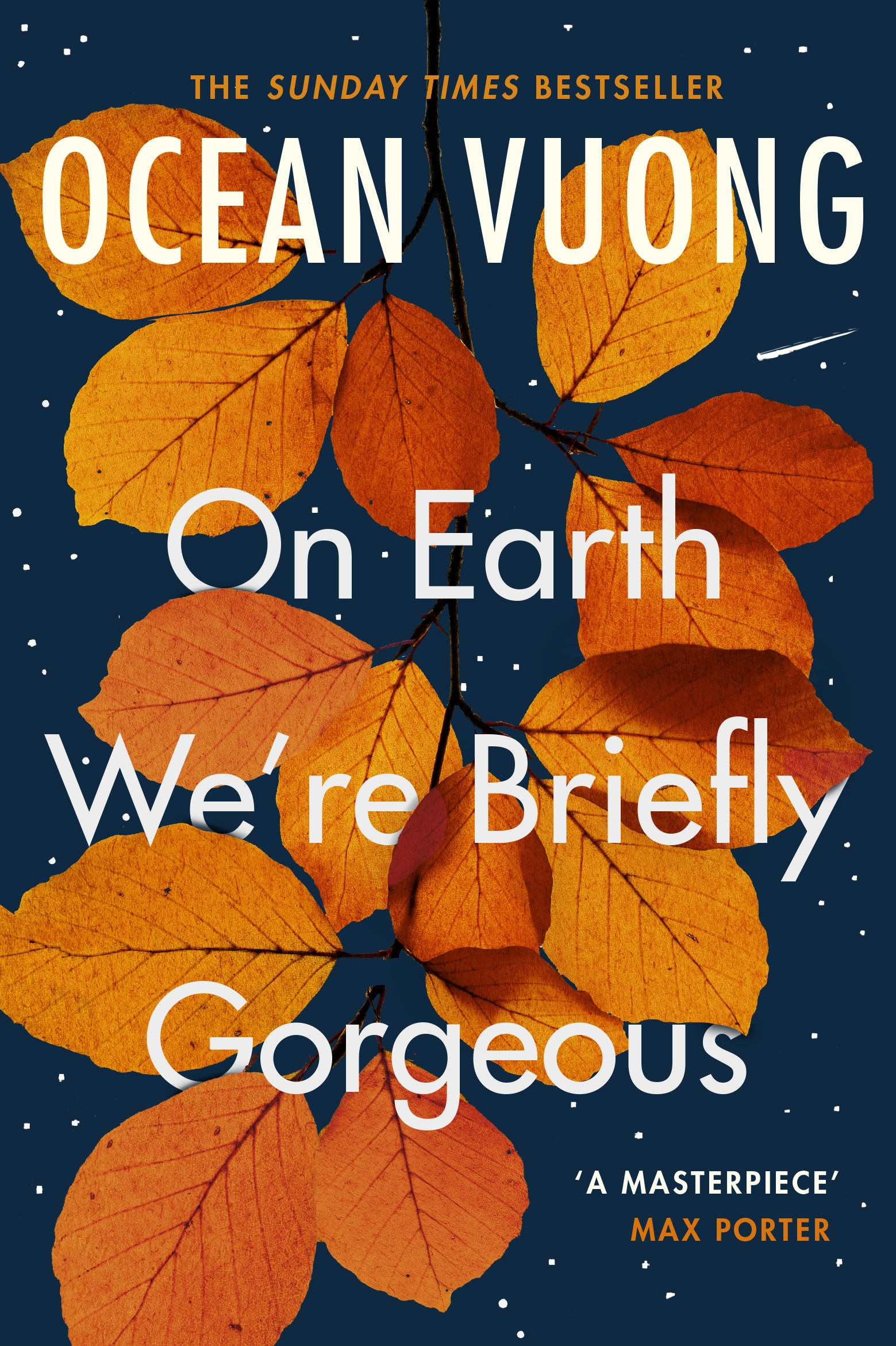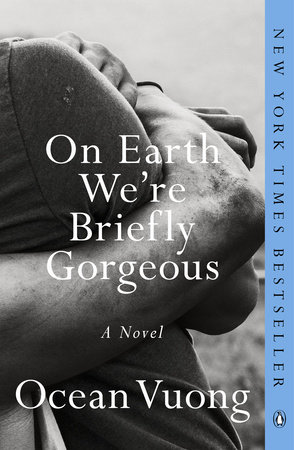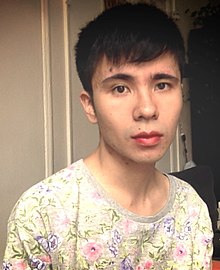On Earth We’re Briefly Gorgeous, A Novel by Ocean Vuong
“One does not ‘pass’ in America, it seems, without English.” Early on in On Earth We’re Briefly Gorgeous, the young speaker, Little Dog, makes the first of many deeply experienced observations about what it means to be an immigrant of color in the US, and a survivor of war and its legacy, brilliantly told in this first novel (published in 2019) by poet and essayist Ocean Vuong.
On Earth is a singular book, fusing autobiography, cultural criticism, poetry, and intersectionality, and is too a love letter to storytelling. Of the novel, Jacqueline Woodson wrote, “Sometimes a writer comes along and stops your breath. I’m reading On Earth We’re Briefly Gorgeous and there is so little air moving through my body as I read. When writing is this good, who needs air?“
Little Dog arrives in the US with his mother, Rose, who is estranged from his father, and grandmother, Lan. They live in a cramped apartment in Hartford, and Rose works long hours in a nail salon as the family struggles to get by. She also suffers from PTSD, a result of her childhood during the Vietnam War, that manifests in outbursts of rage toward her son, yet Little Dog’s abiding loyalty and devotion to her, even as he’s the object of her anger, make up some of the novel’s most moving passages: “because I am your son, I said, ‘Sorry.’ Because I am your son, my apology had become, by then, an extension of myself. It was my Hello.”
Vuong is a recipient of the 2014 Ruth Lilly/Sargent Rosenberg fellowship from the Poetry Foundation, a 2016 Whiting Award, and the 2017 T.S. Eliot Prize. Born in Hồ Chí Minh City, Vietnam, he came to the US in 1990, at two years old, after his family fled Vietnam when his mother, whose father was an American soldier, was targeted by the authorities as illegal—banned from working under Vietnamese law because of her mixed heritage. The family settled in Glastonbury, outside Hartford, Connecticut, where On Earth is set, and where Vuong attended school before leaving for Brooklyn College to study 19th-century English literature and later receiving his M.F.A. in poetry from NYU. He is the recipient of numerous literary prizes, including a MacArthur Fellowship in 2019, the same year On Earth was published, and is the author of two books of poetry, Night Sky with Exit Wounds (2016) and most recently, Time is a Mother, which releases this week from Penguin Press.
Little Dog inhabits a life that can’t be experienced by his family, one he knows from growing up in the community of Hartford amid American culture. He comes to know American life in a way his mother and grandmother never can, and that knowledge becomes the source of a divide that is both beautiful and painful. “Each morning after that, we’d repeat this ritual: the milk poured with a thick white braid, I’d drink it down, gulping, making sure you could see, both of us hoping the whiteness vanishing into me would make more of a yellow boy.”
The novel is too a book Little Dog writes to Rose, who has never learned to read, and as an account of his coming of age, written for her, it too is a painful and beautiful divide, one that allows Vuong to navigate the tensions between his own American life and the one his mother lived. On Earth is not only the story of Little Dog and how he comes to find himself in the narratives of war and lost history, but of how both become integrated parts of himself, carried most noticeably by his name:
“…in the village where Lan grew up, a child, often the smallest or weakest of the flock, as I was, is named after the most despicable things: demon, ghost child, pig snout, monkey-born, buffalo head, bastard—little dog being the more tender one. Because evil spirits, roaming the land for healthy, beautiful children, would hear the name of something hideous and ghastly being called in for supper and pass over the house, sparing the child.”
At fourteen, he gets a job at a tobacco farm outside Hartford, a job that opens another facet of the world: of work and agency and the hardship that comes with labor. It’s there, at the tobacco farm, that he meets Trevor, grandson of the crew foreman, and the two quickly become close. Trevor eventually becomes the great love of Little Dog’s life, and brings his sexual awakening, of agency and self-worth for both, though Trevor’s alcoholic grandfather, Buford, will inflict abuse and pain on both Trevor and Little Dog. Vuong’s prose is both lyric and laser-focused, as here, in a passing description of Trevor:
“There was something about the way he looked when lost in thought, his brow pinched under squinted eyes, giving his boyish face the harsh, hurt expression of someone watching his favorite dog being put down too soon.”
And because the novel takes a deeply reflective stance, each observation, such as the one above, prompts its echo in Little Dog’s own observation of himself:
“What I felt then, however, was not desire, but the coiled charge of its possibility, a feeling that emitted, it seemed, its own gravity, holding me in place. The way he watched me back there in the field, when we worked briefly, side by side, our arms brushing against each other as the plants racked themselves in a green blur before me, his eyes lingering, then flitting away when I caught them. I was seen—I who had seldom been seen by anyone.”
By the novel’s end, we understand the linkage between Trevor, his grandmother’s stories, his mother’s rage, and the generational trauma that connects them all.
Listen to an interview with Ocean Vuong on Fresh Air, on his new book of poetry out April 5, Time is a Mother.
-Lauren Alwan



